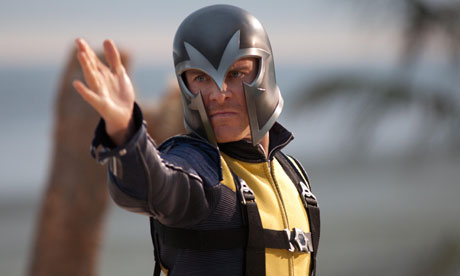A nuclear couple.
Still fresh from watching "When the Wind Blows", I just can't fathom why this film is not as well-known or as highly-regarded an animated film as, say, "Grave of the Fireflies": Isao Takahata's devastating pacifist masterpiece released two years after this one. Admittedly, I would not have been able to know about this film if not for Pink Floyd's official Facebook page (again, thank you), which once posted about "When the Wind Blows" as a sort of look back to Roger Waters' involvement in it as a musical scorer. Though not as quietly painful as the aforementioned Studio Ghibli classic, "When the Wind Blows" still holds its own ground by being arguably more innovative in how it conveys the horrors of war through an assortment of visuals that often border on the psychedelic. Based on the graphic novel of the same name by Raymond Briggs (which I definitely must read), the film tackles the paranoia that has spread across the globe like a plague during the Cold War period, and then filters it through an elderly couple's (voiced by John Mills and Peggy Ashcroft) distorted states of mind in an idyllic British countryside.
Perspective-wise, the film is definitely on par with "Grave of the Fireflies" in terms of treating the impact of war on a highly personal level. For the elderly couple, though, the Russian missile threat, which they view as nothing that the government could not handle, is something that they can live through, no sweat, just like the Second World War. Mockingly labeling the Russians as 'Ruskies' and praising Winston Churchill's wartime deeds while calmly building a bomb shelter (or "the inner core or refuge") as ordered by the government, the couple seems unfazed by the threat as they go on with their everyday routine. But through the film's use of 'acid' imagery in between seemingly ordinary scenes as a sort of visual foreboding, "When the Wind Blows" excels in underlining the immensity of what's about to come even when we're often greeted by the couple's confounding smiles.
As an exploration of wartime psyche, the film is really quite stunning on how it emphasizes the couple's naivety and inept grasp of modernity; a sight that's very painful and heart-sinking to watch. But be that as it may, the film is more fascinating in its humorous undertones, that of which do not minimize the impact of war but merely acknowledge its funnier side.
More often than not, the greatest of dark comedies stem from the very idea of war and destruction, and "When the Wind Blows", although not blatant and showy in its humor, is just as potent a comedy of wartime horrors. But just like a true war comedy, the scarring emotional impact is still very much in place despite its funnier moments.
But with that being said, I'm not saying that "When the Wind Blows" is strictly a comedy film. On the contrary, I thought that the film is as serious as any film about war can get, specifically due to its intimate approach. But still, there's something funny about the elderly couple's cluelessness about the kind of full-scale nuclear war out there that it's just more natural to smile than to weep at their predicament. Consciously or not, perhaps they have seen so much of the horrors of war that they choose to just shrug them all off into non-existence instead of moping in and around its ravages. A quote from Kurt Vonnegut: "Laughter and tears are both responses to frustration and exhaustion. I myself prefer to laugh, since there is less cleaning up to do afterward."
For the elderly couple, to greet the onset of complete annihilation with nothing but smiles on their faces and denial in their minds are all but enough. It may not literally save them, but it can at least preserve the lives they've led as they know it. In the case of "When the Wind Blows", there's indeed something oddly bittersweet in not acknowledging doom for some kind of selective thinking. And in that respect, the couple live on in a way they may not have thought they would, but nevertheless do in a way only the both of them know.
FINAL RATING



.jpg)


